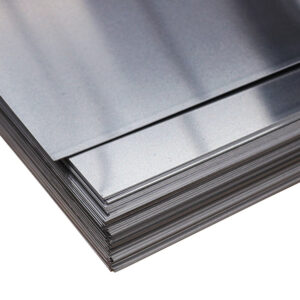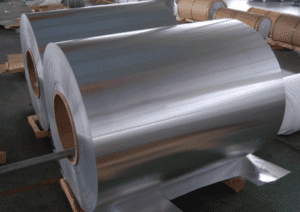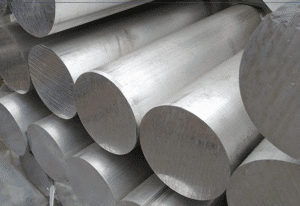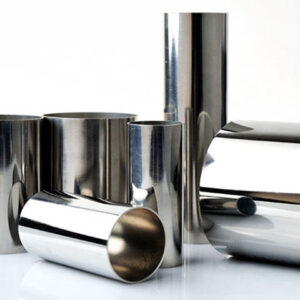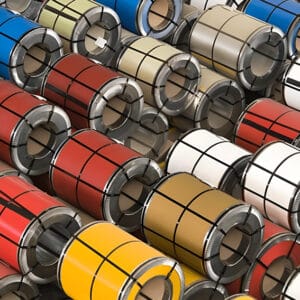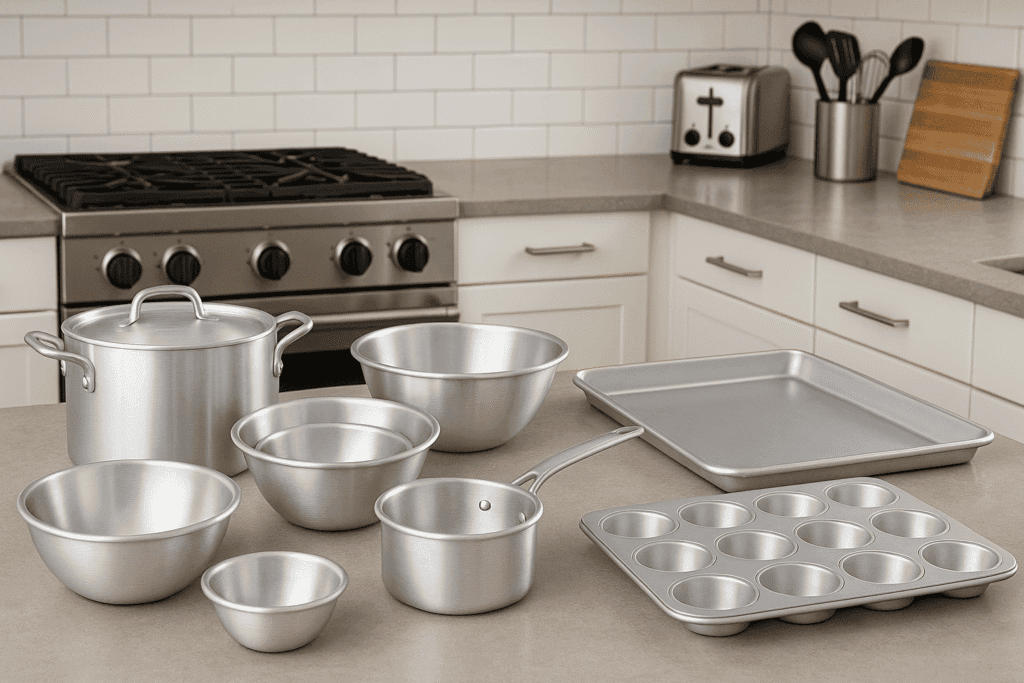Introduction
In the modern kitchen, from lightweight nonstick pans to efficient multi-layer composite pots, the core performance of cookware relies on an inconspicuous yet crucial raw material: the aluminum circle disc. Made from precision-stamped aluminum sheets, aluminum circle plate are widely used in cookware manufacturing, including woks, frying pans, milk pans, and rice cooker liners.
So, why do aluminum circle discs stand out in the competitive cookware market? This article will analyze their advantages from multiple perspectives, including thermal conductivity, processability, mechanical properties, and sustainability, to help you fully understand the importance of aluminum circle discs in cookware manufacturing.

1. Excellent Thermal Conductivity Improves Cooking Efficiency
Thermal conductivity is a key factor in determining whether a material is suitable for cookware. Aluminum has a thermal conductivity of approximately 237 W/m·K, significantly higher than stainless steel (approximately 16 W/m·K) and iron (approximately 80 W/m·K). This means that pots made from aluminum circle disc conduct heat faster and more evenly, reducing cooking time and preventing overheating that can burn food.
In addition, excellent heat distribution contributes to energy savings. Compared to pots made from metals with lower thermal conductivity, aluminum pots reach the ideal cooking temperature more quickly at medium-low heat, saving gas or electricity and improving overall kitchen efficiency.
Especially with the increasing popularity of induction cooktops, many cookware manufacturers are opting to coat aluminum round plate with a magnetically conductive stainless steel layer to balance thermal conductivity and electromagnetic compatibility. This demonstrates the versatility of aluminum in cookware applications.
2. Lightweight, easy to use, and transport
Aluminum has a density of approximately 2.7 g/cm³, significantly lower than iron (approximately 7.8 g/cm³) and stainless steel (approximately 7.9 g/cm³). This makes aluminum circle disc pots significantly lighter, making them particularly suitable for home use, the elderly, or those who frequently move pots in commercial kitchens.
For kitchenware companies engaged in export or bulk shipping, product weight directly impacts shipping and storage costs. Cookware made from aluminum circle not only offers logistical advantages but also improves the economics of cross-border transportation.
3. Excellent Ductility and Formability
Aluminum possesses naturally excellent ductility, especially pure aluminum alloys such as 1050, 1060, and 1100, which can achieve elongation exceeding 30%. This property makes aluminum circle discs ideal for forming processes like stamping, spinning, and deep drawing, allowing them to be formed into complex pot shapes without damaging the metal structure.
For example:
- Stamping: Suitable for shallow pots such as cake pans and frying pans.
- Spinning: Suitable for deep-bottomed woks and soup pots.
- Deep Drawing: Suitable for hollow vessels such as rice cooker liners and thermoses.
Additionally, through annealing treatments (such as O, H12, and H14), the hardness and flexibility of aluminum circle plate can be further optimized to suit different processing requirements.
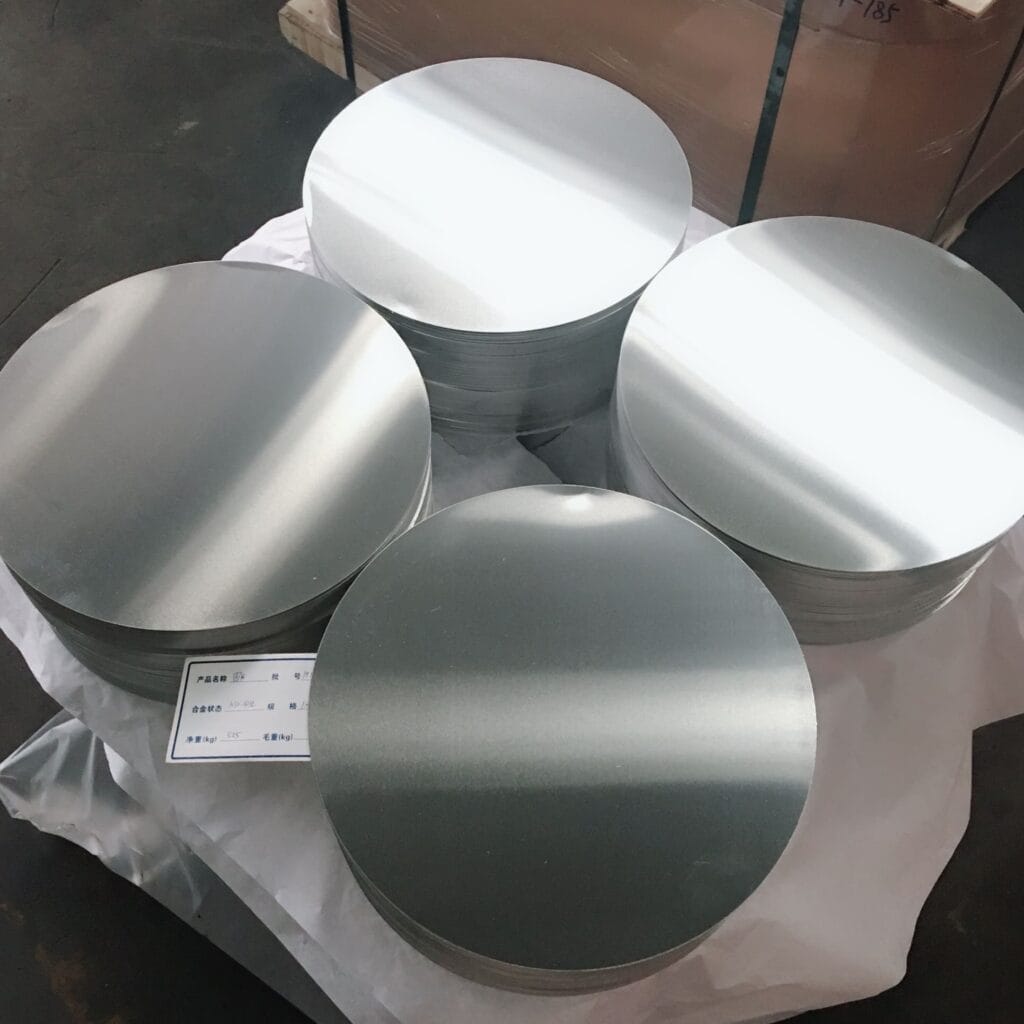
4. Excellent Surface Treatment Adaptability
Aluminum circle discs are not only easy to form but also suitable for a variety of surface treatments, such as:
- Anodizing: Increases hardness and corrosion resistance, while also offering a variety of color finishes;
- Spraying/Coating: Widely used in non-stick cookware manufacturing, enhancing the user experience.
- Polishing and Brushing: Enhance aesthetics and surface feel, suitable for mid- to high-end product lines.
Manganese-containing aluminum alloys such as 3003 and 5005 are particularly well-suited to anodizing, suitable for cookware that requires a long-lasting, pristine appearance.
5. Strong Corrosion Resistance, Suitable for Various Kitchen Environments
Aluminum naturally forms a dense oxide film in air, effectively preventing further oxidation. This ensures that aluminum discs maintain stable performance even in humid, acidic, and alkaline environments.
For cookware, this natural corrosion resistance means:
- Rust resistance and long service life;
- Safer for food contact;
- Reduced quality degradation caused by corrosion.
In addition, 3003 alloy, due to its trace manganese (Mn) content, offers superior corrosion resistance to pure aluminum, like 1050, making it commonly used in pot structures requiring higher durability.
6. Environmentally friendly and 100% recyclable
As environmental awareness grows globally, the sustainability advantages of aluminum are becoming increasingly prominent. Aluminum is a 100% recyclable metal, with recycling consuming only approximately 5% of the energy required to produce virgin aluminum, and with virtually no loss of mechanical properties.
Many countries and regions have clear environmental requirements for kitchenware materials (such as RoHS and REACH certifications). Using aluminum circle bank not only helps companies meet regulatory requirements but also enhances their brand’s environmental image among end users.
7. Cost control and suitability for large-scale production
Compared to metals like stainless steel and copper, aluminum has a more stable and relatively low price, and offers excellent processability and low energy consumption. This provides significant cost control opportunities for kitchenware manufacturers.
- Simplified processing improves production efficiency;
- Raw materials are easily sourced, resulting in shorter lead times;
- Can be combined with a variety of metals for added value.
For OEM/ODM companies, aluminum circle discs not only meet high-performance demands but also help control overall manufacturing costs, adapting to the diverse global niches of mid-range and high-end kitchenware.
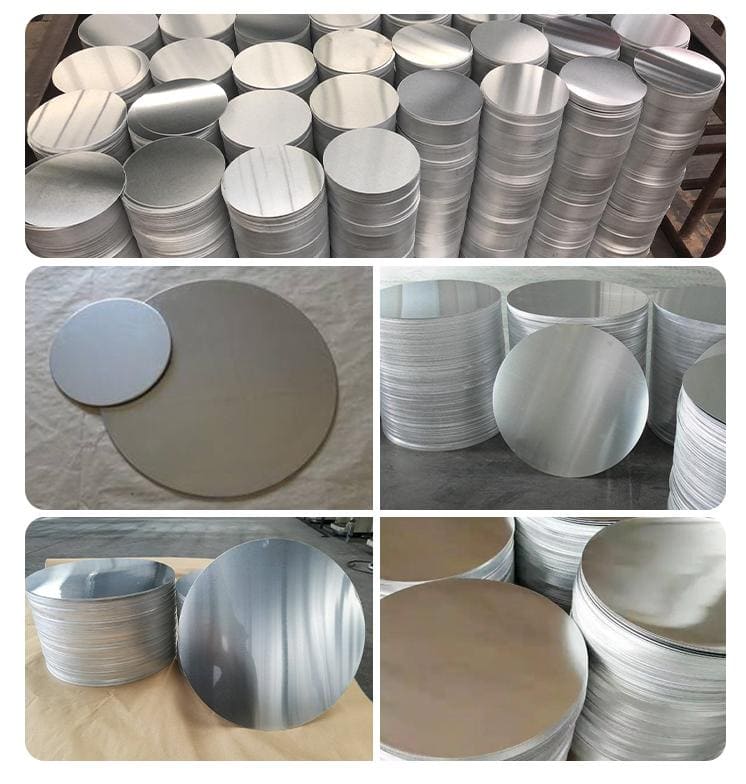
Conclusion: High Performance + High Efficiency = The Optimal Choice
From thermal conductivity to corrosion resistance, from ease of processing to environmental friendliness, aluminum circle are undoubtedly the premium material of choice for modern kitchenware manufacturing. In today’s rapidly evolving world of material technology and consumer trends, aluminum disk will continue to lead cookware manufacturing towards higher performance, greater cost-effectiveness, and a more environmentally friendly approach.
Whether you’re a kitchenware brand, OEM manufacturer, or metal product trader, choosing high-quality aluminum circle will give your products a competitive advantage.
Contact ZGGDMETAL for customized alloys, thicknesses, and diameters, as well as inventory and pricing information. We provide aluminum circle in stock and customized services to meet diverse purchasing needs.

